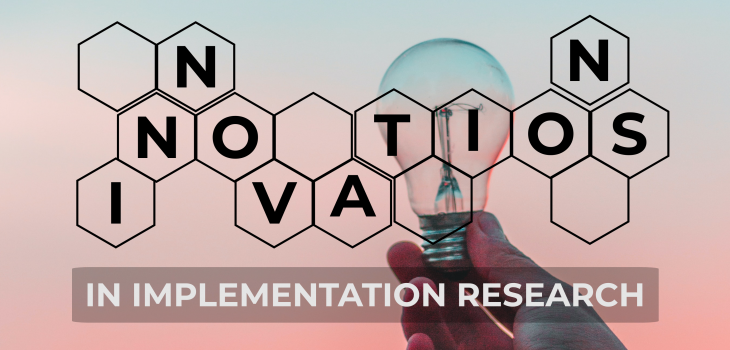By James Hargreaves (London School of Hygiene & Tropical Medicine), Sandra Mounier-Jack (London School of Hygiene & Tropical Medicine), Mishal Khan ((London School of Hygiene & Tropical Medicine) and Kabir Sheikh (Alliance for Health Policy and Systems Research)
The mainstreaming of implementation research within public health programmes around the world – properly resourced and capacitated – will be a necessary component of the Sustainable Development Goals (SDGs) vision to achieve a better future for all. The new supplement in Health Policy and Planning on “Innovations in Implementation Research in Low- and Middle-Income Countries” is a timely reminder of the growing importance of this diverse field of enquiry in realising global health gains.
This supplement showcases methodological innovations in 12 papers conducting implementation research across a range of critical public health domains in low- and middle-income countries. The papers cover diverse public health challenges, from expanding the electrification of rural primary health care facilities in Ghana and Uganda, to improving the quality of team-based primary health care in India, and identifying effective implementation strategies to improve newborn care in a systematic review.
A common thread runs through the papers in the series. Across a range of settings, we see authors tackling real-life problems by deploying critical, rigorous research methods and invoking contemporary theoretical frameworks. For example, in identifying what is needed to support the large-scale implementation of school-based mental health programmes in the Eastern Mediterranean region, policymakers, programmers and researchers co-developed a Theory of Change to identify critical pathways of change. Meanwhile, the techniques of Human Centred Design were used to develop a longitudinal process evaluation and illuminate what is needed to sustainably engage community health volunteers in Kenya. Full-country evaluation studies conducted by the Global Alliance for Vaccine and Immunisation (GAVI) in Bangladesh, Mozambique, Uganda and Zambia studied the processes, inputs, outputs, and outcomes of immunization programs.
Understanding contextual influences on the effective implementation of health policies and programmes is a critical component of implementation research. For example, one paper uses a policy analysis lens to highlight how gender issues and bias have influenced the implementation of universal health care policies in Kenya. Meanwhile, power dynamics and everyday politics strongly influenced the implementation of a flagship maternal health policy in India.
Perhaps the strongest theme of all relates to the growing experience with, and importance of, embedding implementation research as part of a learning agenda for programmes. Participatory action research approaches helped integrate communities into learning processes, thereby strengthening neglected tropical disease control in Nigeria and Liberia. An embedded approach helped support research uptake in projects in Latin America and the Caribbean. In Nigeria, researchers and programme implementers worked on research co-production to enable the adoption of findings from implementation research within adolescent sexual and reproductive health programmes.
For far too long there has been an artificial and unhelpful divide between “research on” and “implementation of” public health programmes. The implementation research agenda that is now taking shape seeks, where appropriate, to erode this distinction. Growing support for this agenda, reflected in the Commentaries that accompany this series, is encouraging. Implementation research must continue to be institutionalised with sustained funding, clear professional pathways and a commitment to research coupled “with” implementation from the outset.
Access the supplement papers in full below:
- Editorial: Implementation research in LMICs—evolution through innovation
- Commentary: Implementation research is crucial to countries’ efforts to strengthen learning health systems
- Commentary: Capacity, committed funding and co-production—institutionalizing implementation research in low- and middle-income countries
- Research article: Harnessing the health systems strengthening potential of quality improvement using realist evaluation: an example from southern Tanzania
- Research article: Team-based primary health care for non-communicable diseases: complexities in South India
- Research article: How to evaluate the implementation of complex health programmes in low-income settings: the approach of the Gavi Full Country Evaluations
- Systematic review: Evaluating implementation strategies for essential newborn care interventions in low- and low middle-income countries: a systematic review
- Research article: Bridging the gap with a gender lens: How two implementation research datasets were repurposed to inform health policy reform in Kenya
- Research article: Unpacking the implementation blackbox using ‘actor interface analysis’: how did actor relations and practices of power influence delivery of a free entitlement health policy in India?
- Research article: Collaborating to co-produce strategies for delivering adolescent sexual and reproductive health interventions: processes and experiences from an implementation research project in Nigeria
- Research article: How does embedded implementation research work? Examining core features through qualitative case studies in Latin America and the Caribbean
- Research article: Identifying pathways for large-scale implementation of a school-based mental health programme in the Eastern Mediterranean Region: a theory-driven approach
- Research article: Implementation research on sustainable electrification of rural primary care facilities in Ghana and Uganda
- Research article: Guiding principles for quality, ethical standards and ongoing learning in implementation research: multicountry learnings from participatory action research to strengthen health systems
- Research article: Implementation research and human-centred design: how theory driven human-centred design can sustain trust in complex health systems, support measurement and drive sustained community health volunteer engagement
Check out the podcast with three authors from this journal supplement here.











